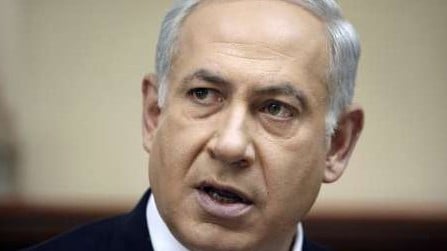
Israeli Prime Minister-designate Benjamin Netanyahu urged key ally the United States to reaffirm its commitment to Saudi Arabia and pledged to pursue formal Israeli ties with Riyadh for a "quantum leap" in peace, Al Arabiya English said on Thursday.
The U.S.-Saudi strategic partnership has frayed under President Joe Biden's administration and there has been tension between the United States and the United Arab Emirates, which forged relations with Israel.
"The traditional (U.S.) alliance with Saudi Arabia and other countries, has to be reaffirmed. There should not be periodic swings, or even wild swings in this relationship, because I think that the alliance...is the anchor of stability in our region," Netanyahu told the Saudi-owned website.
Also read: Kashmiris block highway after Indian army martyrs two labourers
"I'm to speak to President Biden about it," Netanyahu said according to a published transcript of the interview.
Having come ahead in a November election, Netanyahu is in talks on forming a coalition with religious-nationalist partners and has until Dec. 21 to finalise the government.
Netanyahu said he was committed to building on normalisation pacts signed with the UAE and Bahrain in 2020 under his leadership, known as the Abraham Accords, which created a new axis in the face of Iran's growing influence in the region.
Gulf powerhouse Saudi Arabia blessed the U.S.-brokered pacts but stopped short of formally recognising Israel in the absence of a resolution to Palestinian statehood goals.
An accord with Saudi Arabia, birthplace of Islam, would be a "quantum leap for an overall peace between Israel and the Arab world" and ultimately facilitate Palestinian-Israeli peace, Netanyahu said.
"I intend to pursue it," he said, voicing hope the Saudi leadership would "partake in this effort".
Israel and Sunni Muslim Gulf monarchies share concern over Shi'ite Iran's nuclear and missile programmes and its proxy network, and see economic opportunities in the Abraham Accords.
Also read: Afghan Taliban administration, Myanmar junta not allowed into United Nations for now
Gulf states, which rely on the U.S. security umbrella, have questioned Washington's commitment to the region. U.S.-Saudi ties have been strained over Riyadh's human rights record, the Yemen war, and more recently, energy policy.
Saudi Arabia has made some gestures towards Israel, announcing in July during a visit by Biden to the kingdom that it would open Saudi airspace to all carriers. Progress on that for Israeli airlines hinges on approval from Oman on use of its airspace to skirt Iran for journeys to Asia.





















COMMENTS
Comments are moderated and generally will be posted if they are on-topic and not abusive.
For more information, please see our Comments FAQ